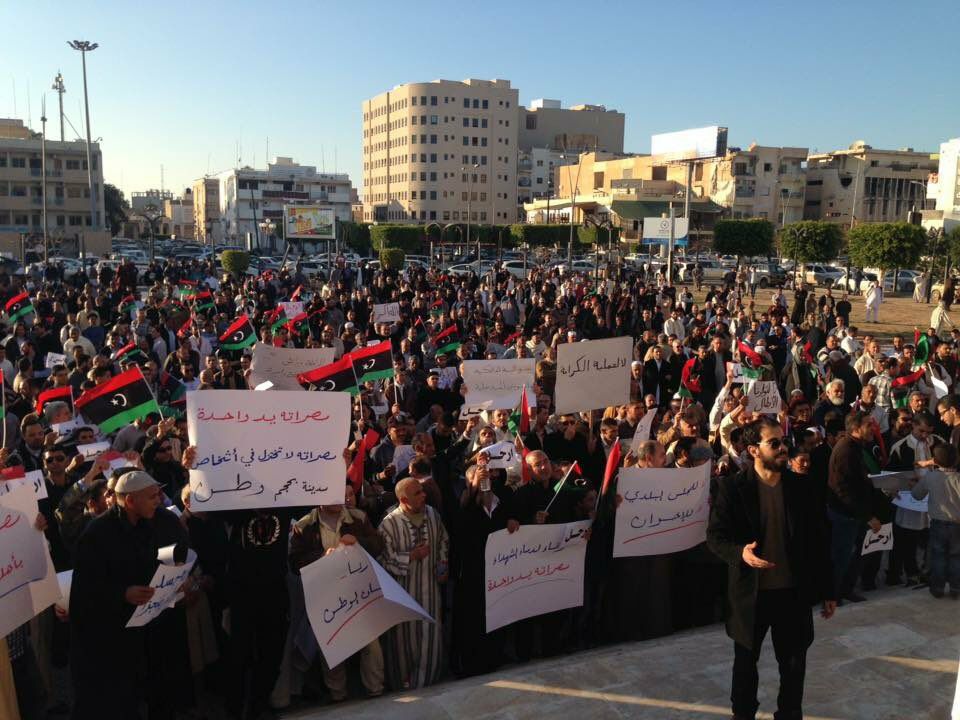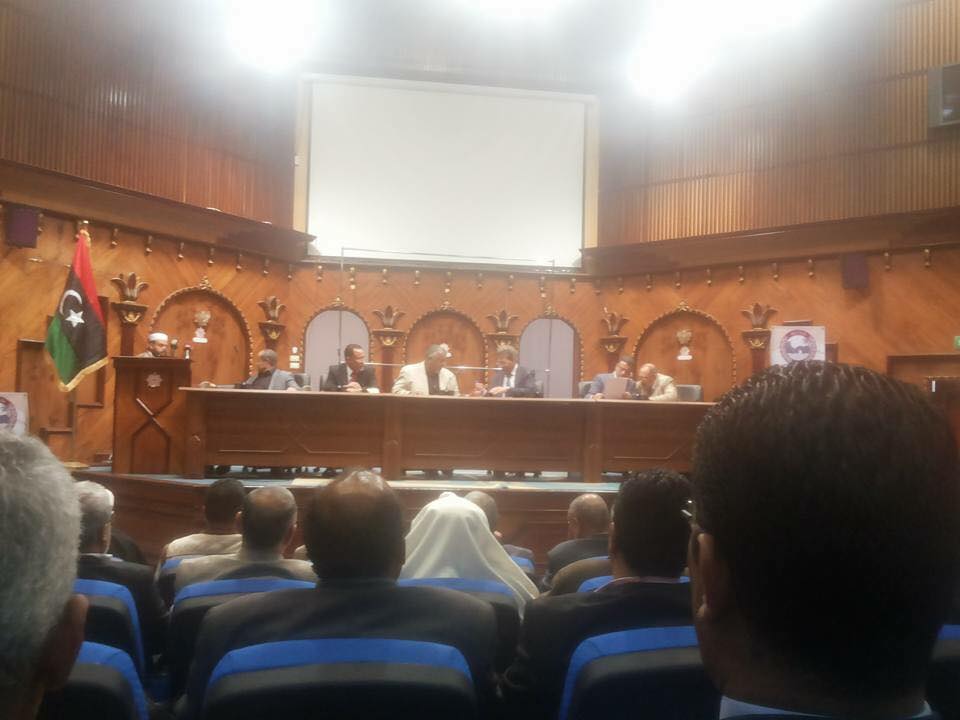By Libya Herald reporters.
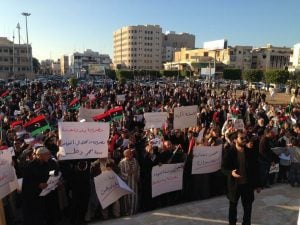
Misrata/Tunis, 24 March 2017:
Misrata saw rival protests today, both for and against the municipal council. The demonstration outside the city’s Martyrs’ Hall, demanding the council be sacked, was the larger according to locals, drawing several hundred protestors.
The pro-council demonstrators gathered outside the municipal council offices.
Both gatherings were peaceful and, in the case of the anti-council demonstrators, even “joyful”, according to Mohamed El-Fortia, who ran Misrata hospital during the revolution and who now supports the removal of the council. He added that those attending were mainly young people and that noted Misratan hardliners such as Salah Badi had not been asked to speak. Badi appears, however, to have attended.
For its part, the council thanked its supporters for turning up and taking part in peaceful protests.
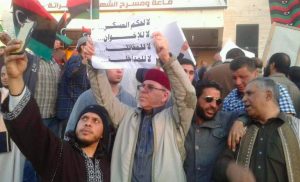
Nonetheless, the pressure is mounting on the council to quit, although for the moment, despite reports today to the contrary, no councillors have resignd. El-Fortia, however, said that while it was proving extremely difficult to dislodge the councillors, the protestors would win in the end. He added that the anti-council movement wanted dialogue but could not negotiate with “criminals”, referring to Hassan Shaba, the former Qaddafi ally who was accused of helping Qaddafi forces in their efforts to enter Misrata in the first attack on the city at the beginning of the revolution.
Shaba has become a main point of contention as far as the anti-council movement is concerned. It has accused Misrata mayor Mohamed Eshtewi of collaborating with Shaba and using him to help negotiate the Tripoli ceasefire agreement nine days ago which Eshtewi signed and which was supposed to put an end to fighting in the capital between Tripoli and mainly Misratan militias. The anti-council movement has firmly condemned the agreement.
For his part, Eshtewi has denied any collusion with Shaba, saying that the man had arrived late during the ceasefire negotiations and had been brought along by someone else.
In the event, the ceasefire was a failure.
El-Forta meanwhile claimed that today’s pro-council protest had also been organised by Shaba. However, this was denied by a pro-council official who attended both demonstrations. Shaba was not even in Misrata, he said. He was in Tripoli.
Shaba, though, is seen largely as a diversion in a battle where the real target is Misrata’s support for the Presidency Council.
For now there is stalemate. The council has accused its opponents of representing only themselves and of trying to impose their views by force, but it appears unable to end the crisis. On the other hand, the announcement three days ago by the anti-council activists that the council had been sacked and that no organisations in the city would any longer take orders from it has so far turned out to be wishful thinking.
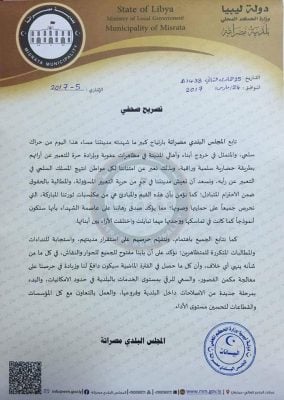
The crisis shows every sign of continuing. The role of the city’s military units is being seen as crucial. The “anti” movement is supported by the city’s hitherto power military council and a number of smaller militias. The council is backed by the mainstream units, such as Halbous and Mahjoub.
While they continue to support it, its future is seen as secure.
